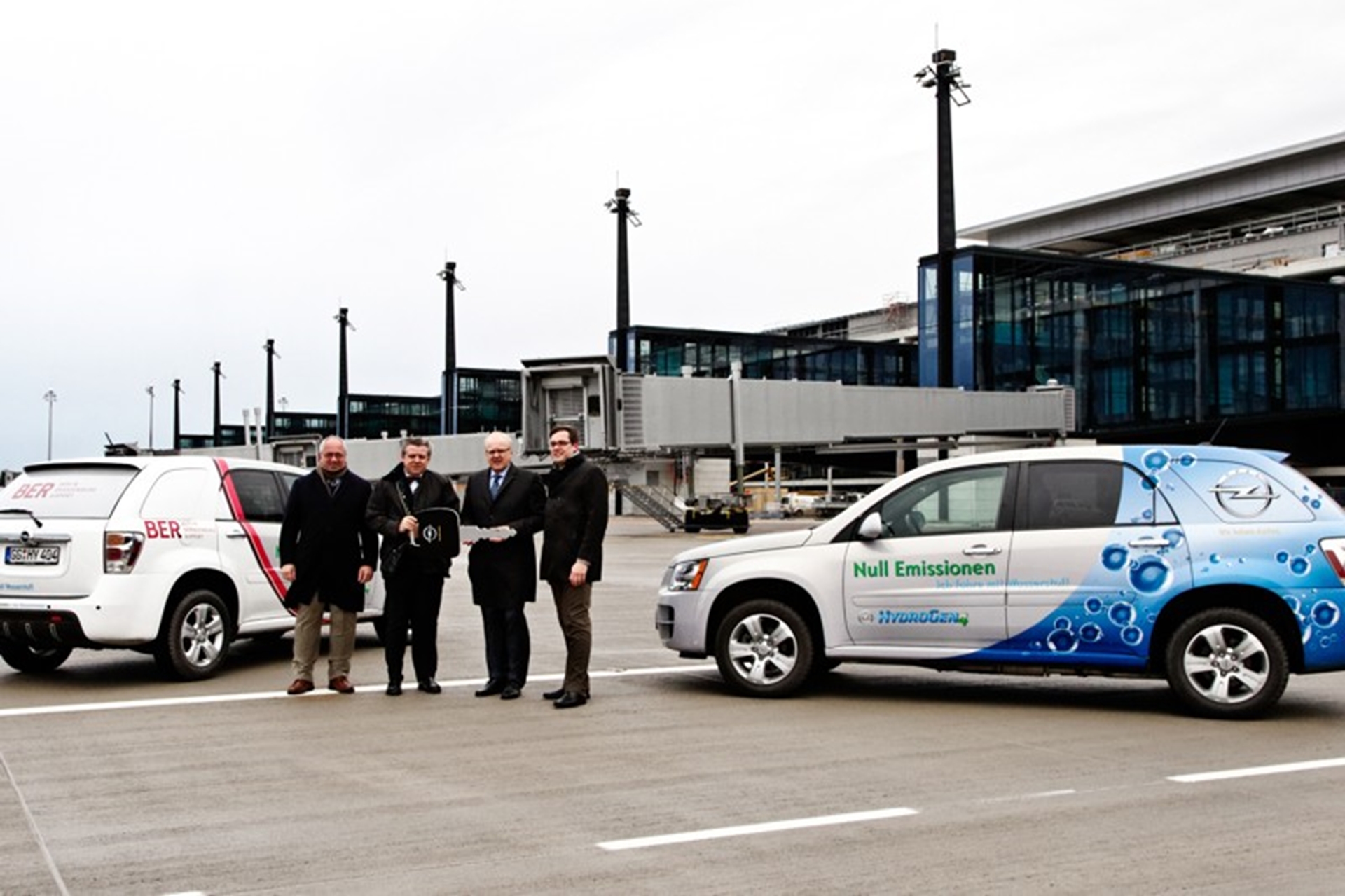-
Company takes lead in environmental and resources protection
-
Berlin Brandenburg Airport (BER)gains world’s first CO2 neutral gas station with “green” hydrogen

Rüsselsheim/Berlin. Opel is further expanding its market trial with fuel cell vehicles. The Opel Vice President of Government Relations, Volker Hoff, has now handed over a HydroGen4 vehicle to the Berlin Airports.
“The vehicle which has an emission free hydrogen propulsion is supposed to give valuable further insights into the everyday suitability of this futuristic technology as part of the Clean Energy Partnership,” says Hoff. “BER is an ideal partner as it possesses the world’s first CO2 neutral gas station. The Total gas station provides green hydrogen produced from wind energy by Enertrag. Both firms, Total and Enertrag, are also partners of our market trial.
Now that we have signed up BER as a new partner, we have closed the circle of sustainable mobility.” The Opel market trial with fuel cell vehicles has been underway since 2008.
The general manager for BBI, the company that operates Berlin’s airports, Dr Manfred A. Körtgen, says energy efficiency and sustainability are the environmental goals of the Berlin airports. “We fully intend to develop the new Berlin Brandenburg Airport into the most modern airport in Europe with a leadership role in environmental and resources protection. Of course the same is true for the use of alternative propulsion in the airport vehicle fleet.
Our cooperation with Opel and the long term trial of the hydrogen vehicle HydroGen4 give us a great opportunity to test this modern and environmentally-friendly form of propulsion for its everyday suitability at the airport.”
The new Berlin Brandenburg Airport will become fully operational on June 3, 2012 and will replace the old airports of Tegel and Schönefeld. Apart from BER a string of companies including the ADAC, Allianz, Axel Springer AG/Bild, Coca-Cola, Hilton, Linde, Pace, Schindler, Veolia and the NH Hotel Friedrichstrasse have been testing hydrogen as a futuristic and clean form of fuel in conjunction with the Opel HydroGen4. Public institutions such as the Berlin office of the state of Hesse have also been involved. The CEP is a project that is promoted by Germany’s Federal Minister of Transport, Building and Urban Affairs in which the everyday suitability of hydrogen as a fuel in daily traffic is shown. It constitutes the largest such developmental program in Europe.
The Opel HydroGen4 is the latest milestone of Opel and General Motors’ research in the field of fuel cell propulsion. Its fuel cell stack consists of 440 series-connected cells that produce the electrical output to power the synchronous electric motor.
The 73kW/100hp engine unit delivers an acceleration rate of 0 to 100 km/h in twelve seconds with a top speed is 160 km/h. Three high pressure tanks made from carbon-fiber composite material can hold up to 4.2 kg of hydrogen. This provides an operating range of up to 320 kilometers. Filling up with hydrogen only takes three minutes because of the 700-bar pressure technology. Opel was one of the main developers of the technology.